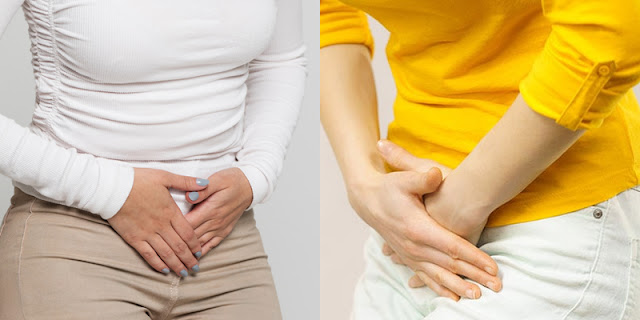Cystitis: Causes, Symptoms, Prevention, and Treatment
Cystitis, also known as a urinary tract infection or bladder inflammation, is an infectious condition typically caused by bacteria. Technically, the term "cystitis" refers to infections of the bladder alone, but it is commonly used to describe infections throughout the urinary tract, including the bladder, kidneys, ureters, and urethra.
Cystitis causes intense pain. Here's what causes it, its symptoms, and how to treat it.
Causes of Cystitis
Cystitis is almost always caused by bacteria that settle in the urinary system. In most cases, it's an intestinal bacterium originating from the affected person's fecal matter. Rarely, the condition may be caused by a sexually transmitted disease or an infection elsewhere in the body.
Who is Affected by Cystitis? What are the Risk Factors?
Anyone can suffer from cystitis, but it disproportionately affects women because their urinary tract is smaller than that of men, making it easier for the bacteria to reach the bladder. It's estimated that 20 to 40% of women have experienced cystitis in their lifetime, with about 3% experiencing it annually.
Certain individuals are more at risk of contracting cystitis:
- Men over 50 with prostate issues may also be affected.
- Newborns whose urinary system is not yet mature sometimes have urinary infections (2% of babies), mostly boys.
- Pregnant women, due to pressure on the urinary tract and hormonal changes.
- Diabetics.
- Individuals who have had a urinary catheter for a medical examination.
- Elderly individuals.
- Individuals with urinary system malformations.
Certain factors can also increase the risk of cystitis, especially in women:
- Having frequent and intense sexual activity after a period of abstinence.
- Using a diaphragm (female condom).
- Using spermicides.
- Wiping from back to front after a bowel movement can transfer bacteria from the anus to the urinary tract.
- In men, engaging in unprotected anal intercourse can also increase the risk of a urinary infection.
Contagion of Cystitis
Cystitis is not contagious per se, but it can be transmitted through direct contact with certain germs during direct contact (not from a toilet seat!).
Main Symptoms of Cystitis
The symptoms of cystitis include:
- Pain and burning during urination.
- Frequent and urgent urination, but only small amounts of urine are passed.
- Difficulty urinating.
- Dark-colored urine.
- Occasional presence of blood in the urine.
- Nocturnal incontinence.
- Cramps and lower abdominal pain.
When cystitis affects the kidney system, additional symptoms appear:
- High fever.
- Chills.
- Intense fatigue, weakness.
- Lower back pain (kidney level).
- Nausea and vomiting.
Diagnosis of Cystitis
It's important to consult a specialist at the onset of the first symptoms of cystitis to prevent it from spreading to the rest of the urinary system. In addition to a comprehensive physical examination, the doctor will perform a urine analysis and, in some cases, consider an ultrasound and/or cystoscopy.
Possible Complications
Cystitis that is treated at the onset of symptoms usually does not cause complications and disappears within a few days. If the infection is not treated, it can cause kidney problems and sometimes septicemia (blood infection) or chronic kidney failure.
Pregnant women suffering from cystitis have a 1/3 chance of premature delivery and giving birth to a low-weight baby.
Treatment of Cystitis
Cystitis is almost always treated with antibiotics that differ depending on the origin of the disease (STDs, prostate issues, etc.). The medications alleviate symptoms in about 48 hours, but it's essential to complete the prescription to avoid recurrences.
While waiting for the medications to take effect, pain relievers can be taken, hot compresses can be applied to painful areas, and drinking plenty of water is recommended.
Prevention of Cystitis
To avoid the risk of cystitis or recurrences, it's important to:
- Drink plenty of water daily (1.5 to 2 liters per day).
- Not delay urination.
- Urinate soon after having sexual intercourse.
- Avoid diaphragms, spermicides, and genital deodorants.
- Prefer showers over baths.
- Clean the anal and genital areas daily.
- For women, always wipe from front to back after a bowel movement.
Note: The information provided in this article is for informational purposes only and will enable you to ask informed questions to your doctor.

